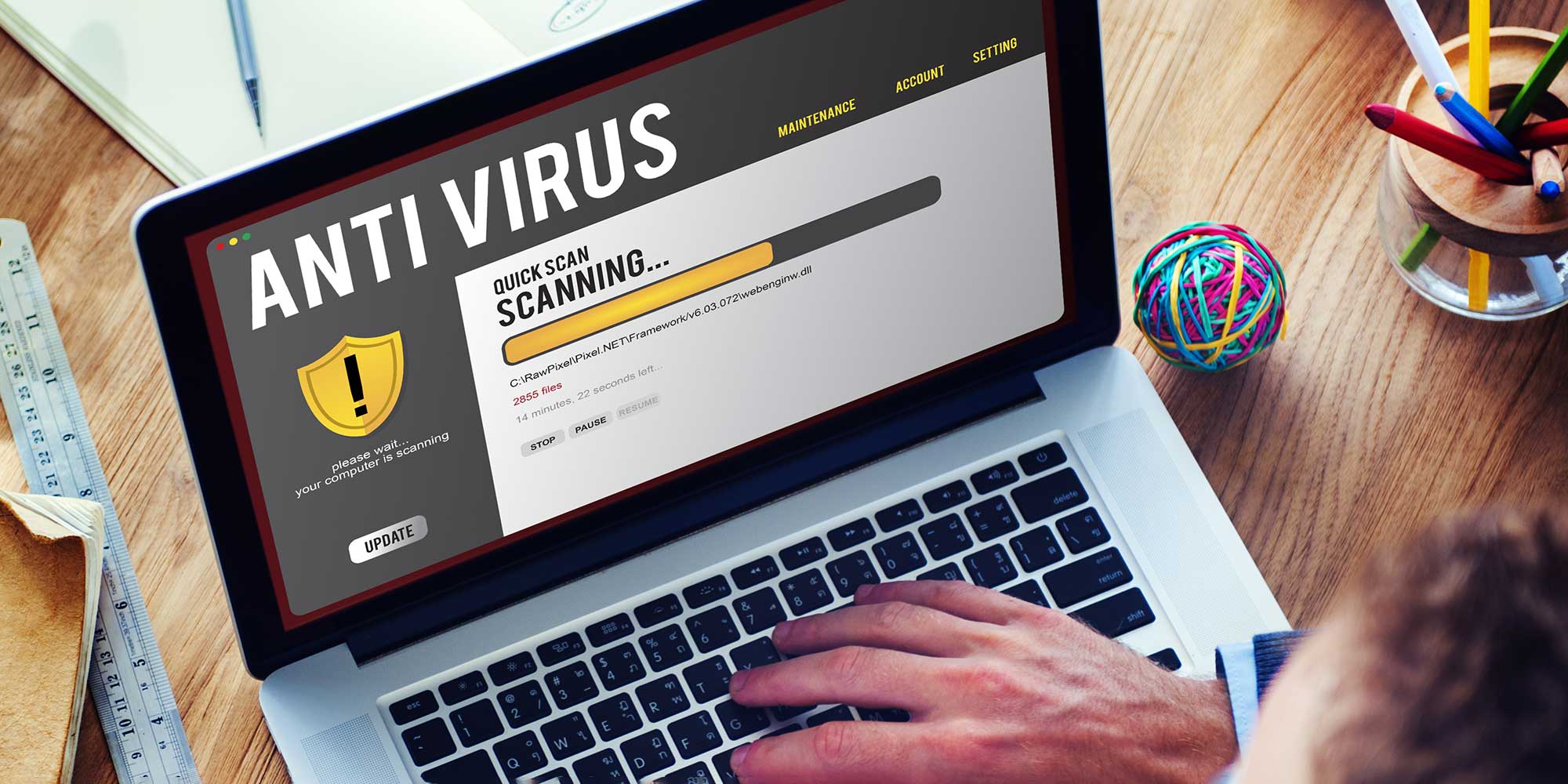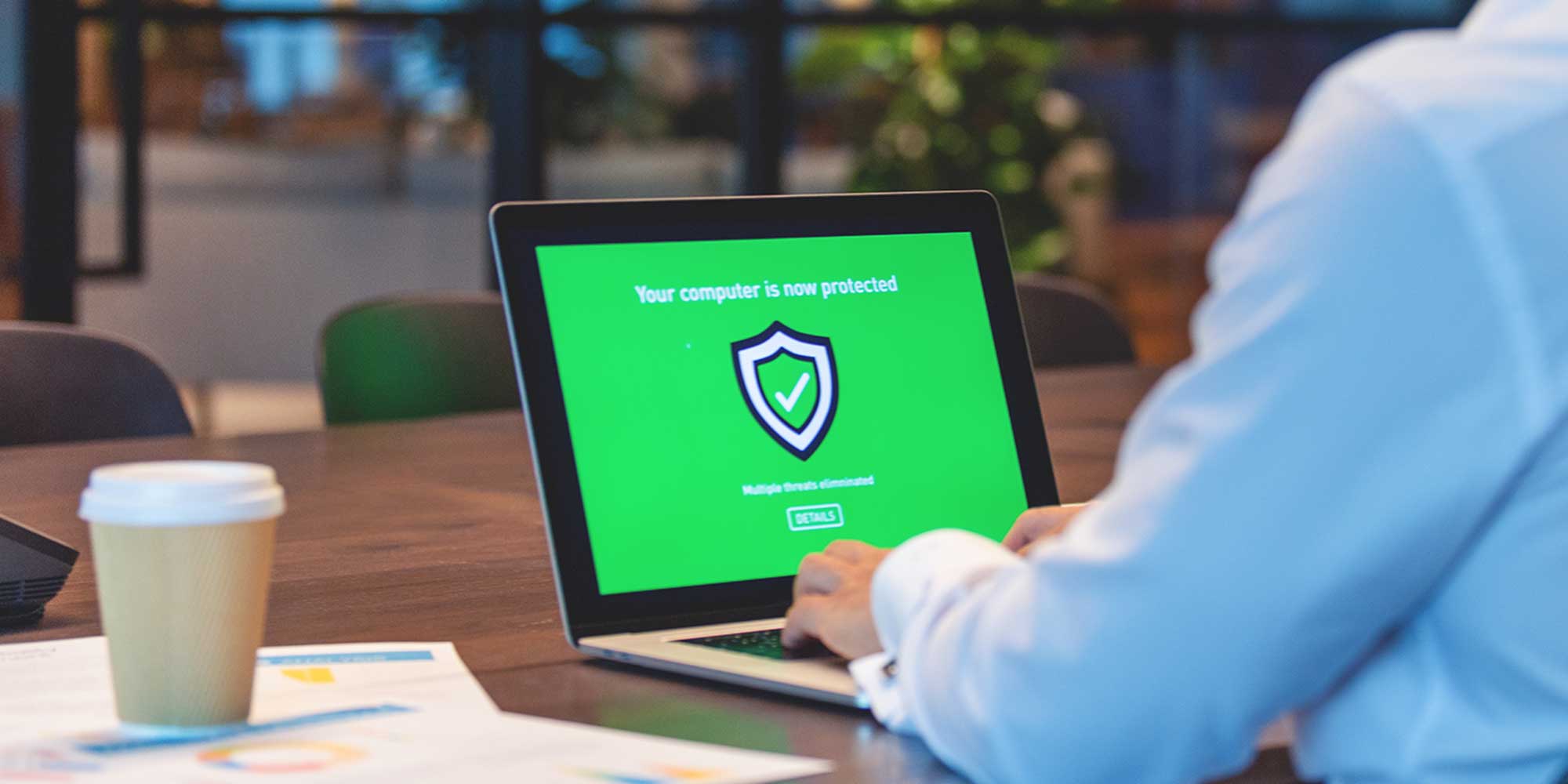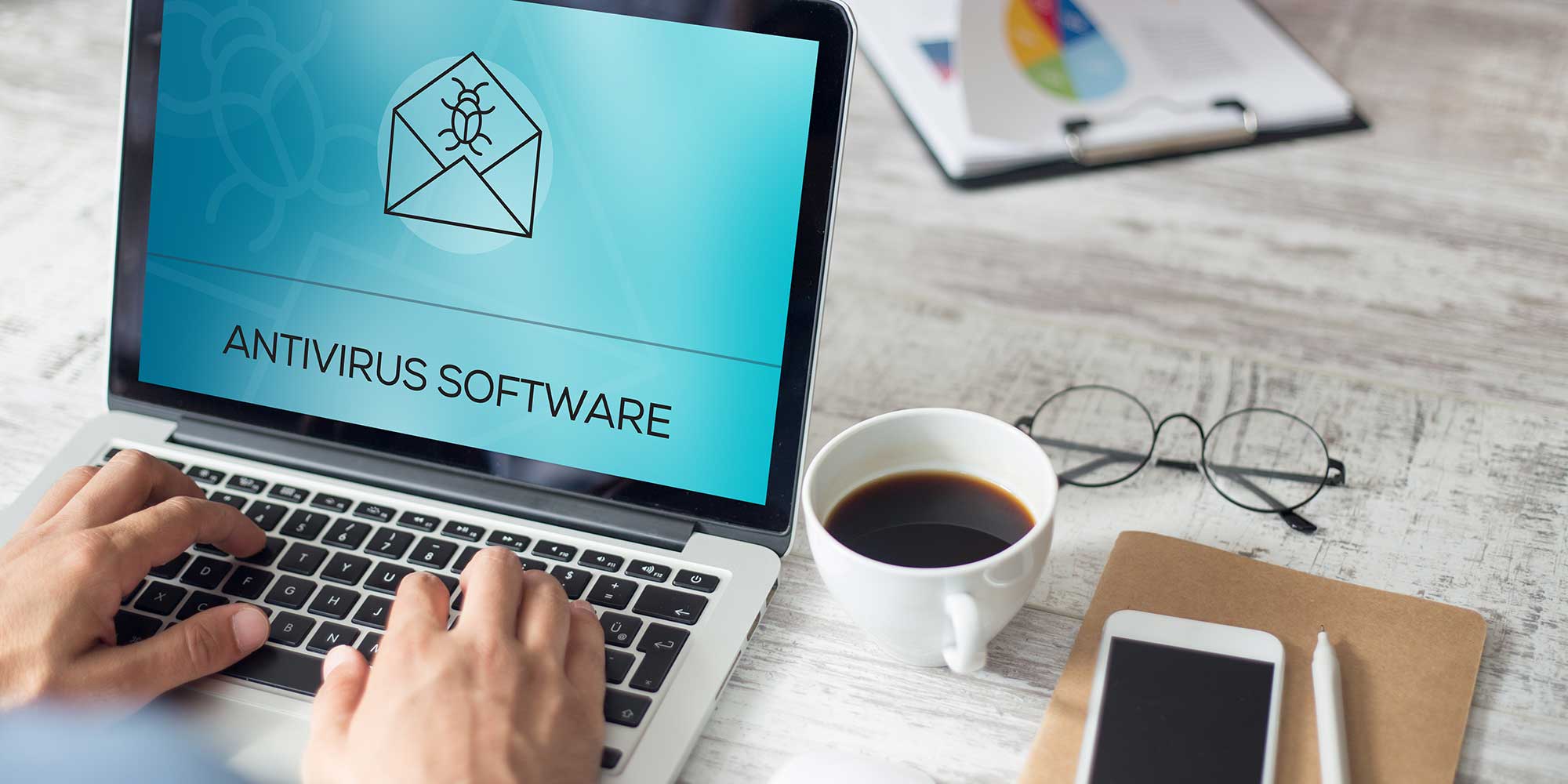By clicking a retailer link you consent to third-party cookies that track your onward journey. This enables W? to receive an affiliate commission if you make a purchase, which supports our mission to be the UK's consumer champion.
Is it worth paying for antivirus? We reveal why it's probably not

Whether it's a month of Netflix to go with your new mobile contract, or a year of free insurance when you buy a new car, we're used to companies bundling extras with their products to make them seem better value than the rest.
Antivirus companies do this to the extreme. Ever noticed that most antivirus software is now called a 'security suite' or 'total protection'? In a market where all the products have become so reliable, adding extra features has become a game of cat-and-mouse, with extras disappearing and reappearing year in, year out.
But the big question is, are any antivirus programs actually worth paying extra for? Or should you just opt for the free packages that simply include capable core protection and little or nothing else? Below, we reveal whether there are any fundamental differences between free and paid-for versions of the same antivirus software.
Check out our expert pick of the best antivirus software for Windows as revealed by our tough lab tests
Does paying for antivirus get you better protection?
The basic job of security software is to passively stand guard, preventing malicious software (known as malware) from either being downloaded or, if it's already snuck onto your computer, from activating and doing any damage.
We also expect this software, typically in conjunction with an additional browser extension tool, to stop you from visiting phishing websites designed to steal your data.
Our lab tests have consistently shown that - when it comes to core protection - the best free antivirus is a match for paid-for equivalents.
This is even true when comparing free and paid-for software from the same antivirus company. From our lab tests, we can say that there is either no or very little difference to the core protection offered by the free and paid-for versions.
You can see below in our table that where there are differences, they aren't in the fundamental protection provided. Instead, we typically see the difference is in the annoyance of ads (usually aggressive upselling attempts). We're not revealing the brand names in the table as that content is reserved for Which? members.
| Brand | Live protection (out of 5) | Anti-Phishing (out of 5) | Scanning overall (out of 5) | Ease of use (out of 5) | Ad annoyance (out of 5) |
| Brand A Free | 5 | 5 | 4 | 5 | 5 |
| Brand A Premium | 5 | 5 | 4 | 5 | 5 |
| Brand B Free | 5 | 5 | 5 | 4 | 4 |
| Brand B Premium | 5 | 5 | 5 | 4 | 5 |
| Brand C Free | 5 | 5 | 5 | 4 | 2 |
| Brand C Premium | 5 | 5 | 5 | 4 | 2 |
| Brand D Free | 5 | 5 | 5 | 5 | 3 |
| Brand D Premium | 5 | 5 | 5 | 4 | 5 |
Which? members can get access to all our full antivirus software test results in our independent guides to the best antivirus software
Premium antivirus features: are they worth it?
Now we've established that free and paid software provide exactly the same basic protection, you can now think about whether you want to pay anyway in order to get extra features.
Some of these extra features can increase your security from other threats or improve your online privacy, but none of them are what we'd deem essential for protecting your computer. Some offer extra peace of mind, while others don't really have that much of a benefit at all.
Additional licences to cover more devices
Should you pay extra? Yes, if you want to cover many devices under a single account.
Free software typically only includes one licence to cover a single device. We've seen rare examples of free antivirus offering more licences in the past (such as with Bitdefender) but this is no longer currently the case, and we can't guarantee it will be again - unlike with paid-for software.

Depending on the brand, paying for antivirus will get you anywhere between three and 10 licences to cover multiple devices. Plus if you have a mixture of Windows and Mac devices, some paid antivirus, such as Norton with its Deluxe and Advanced packages, allow for cross-platform protection, which means its software works on both Windows and Mac computers.
A bundled VPN
Should you pay extra? Probably not.
Lots of paid-for antivirus comes with a VPN (virtual private network) included. VPNs help you to control your privacy online.

The main issue with VPN software bundled with your antivirus is that it typically offers a miserly amount of data. Avira Internet Security, for example, comes with just 1GB a month. This is about as little as you'd get from a free trial with another VPN company, and only makes sense if you rarely use a VPN.
Bitdefender offers just 200MB a day, which is only enough for a bit of online browsing on a given day.
If that's all you need, great. But if you want more, consider paying for a proper VPN subscription.
System tune-up
Should you pay extra? No.
This is a classic value-added feature that can occasionally be helpful but it's not so useful that it's worth paying extra for.
It's a really common feature in free antivirus tools, and you can all but guarantee that no matter what you do, your antivirus will find 'advanced' problems that require you to shell out to fix them.
We've rarely seen any of those 'advanced' problems turn out to be anything more than basic settings tweaks, which frankly we could take or leave.

In all but the most extreme circumstances, all that this software will find is 'junk' or duplicate files, and it will want to empty your Downloads folder and possibly delete all your web browser cookies.
Some may also suggest that you update some software. In some cases this could be quite handy, but ultimately you can do this yourself without paying:
- Keep your Downloads folder tidy.
- Use the Storage Settings tools in Windows 10/11 and MacOS to keep junk files at bay.
- Ensure you only keep programs you want installed by using the 'Add or remove programs' tool in Windows 10/11, or delete the app from the Finder app in MacOS.
Family/parental controls
Should you pay extra? Yes (but only if you need it).
Family/parental controls let you set rules and manage a number of devices within your family. Where applicable, they'll also provide specific antivirus protection to those devices.
Features include setting screen-time limits, preventing specific apps from being installed, and keeping track of the location of smartphones (make sure you let the kids know before you do this).

This can be incredibly handy, especially if your household has a mix of Windows, Mac, iOS and Android devices. Keep in mind, though, that you don't strictly need to pay to have this level of control over the kids' tech. Microsoft Family Safety, Apple parental controls and Google Family Link all provide very similar features for their respective devices. So paying for such a tool isn't strictly necessary.
But if you want a one-stop shop to manage and protect your family's devices, paying extra for this could be a good move.
Banking browser
Should you pay extra? Only if you're really worried (and if it actually works).
A banking browser, also known as safe browsing or safe banking mode, purports to provide extra protection to prevent keyloggers and hackers seeing what you're up to when you're banking online.
Bitdefender, Norton and others provide this as part of their paid-for products.
Like ransomware protection (see below), this really shouldn't be necessary if your antivirus is working properly. If there's a keylogger or some other nefarious activity happening on your computer, your antivirus should have already spotted and eliminated it.

With that said, banking fraud remains a common and devastating crime, so any tools that help to prevent it shouldn't be dismissed entirely.
But beware: in our testing we've previously had mixed results with these browsers actually working at all. Often they don't appear to do anything, while at other times they fail to recognise when you visit a banking website and so don't activate.
Ransomware protection
Should you pay extra? Yes, if you're very worried about ransomware.
Ransomware is nasty: it locks up your files and demands you pay a fee to unlock them again. Never do this, as there's no guarantee that the cybercriminal behind the attack will actually restore your files, even if you pay the ransom.
However, despite its infamous reputation, ransomware is relatively uncommon compared with other types of viruses, according to our test lab. There are much easier ways to get money out of you by stealing credit card information or trying to scam you via text message or email.
But it does still happen, which is why security companies often highlight it in their marketing and include 'ransomware protection' as a premium feature.

In truth, ransomware protection isn't the right name for this feature - this implies that without it, ransomware is free to do what it wants on your computer. This isn't true.
What it actually does is monitor specific files that you value highly, and prevents any other programs from modifying or deleting them without your permission.
Sounds handy, but keep in mind that if your antivirus is any good, it will stop the ransomware from running at all - therefore never allowing it to even get close to locking up your files.
We know this because we've used free software, which offers ransomware protection as a paid upgrade, and found that the free software is equally as adept at stopping ransomware as the paid-for version.
This shows that all you're actually paying for is the file-monitoring feature. Ultimately, if you're extremely worried about ransomware, you should use a service such as OneDrive or Google Drive to keep your files backed up.
Find out the best Mac antivirus that will keep your Apple devices safe from viruses, phishing and other online nasties



